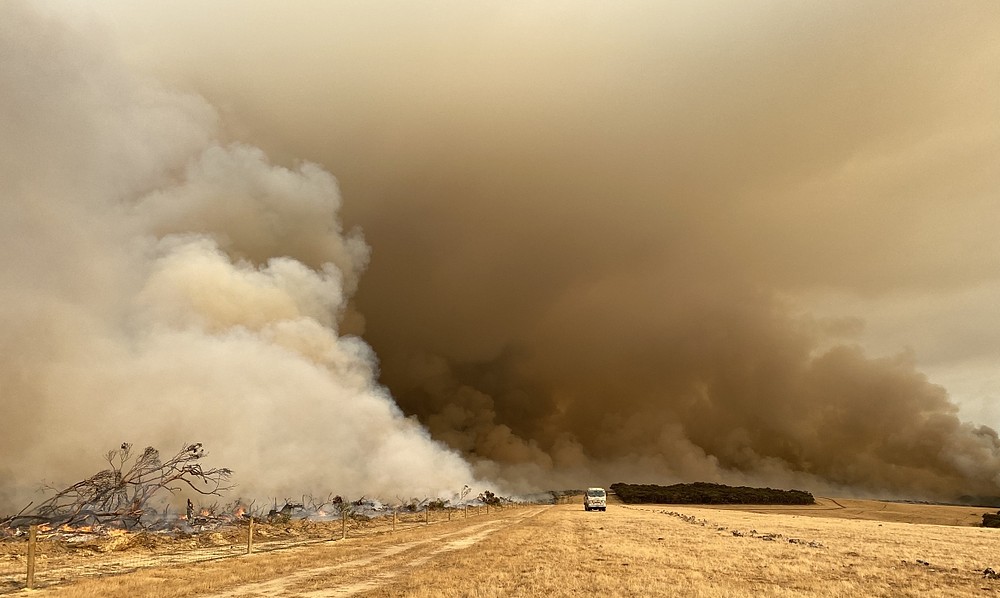The WWF is run at a local level by the following offices...
- WWF Global
- Adria
- Argentina
- Armenia
- AsiaPacific
- Australia
- Austria
- Azerbaijan
- Belgium
- Bhutan
- Bolivia
- Borneo
- Brazil
- Bulgaria
- Cambodia
- Cameroon
- Canada
- Caucasus
- Central African Republic
- Central America
- Central Asia
- Chile
- China
- Colombia
- Croatia
- Democratic Republic of the Congo
- Denmark
- Ecuador
- European Policy Office
- Finland
As a climate change policy analyst, I am baffled by why people aren't taking this crisis more seriously, especially when it comes to making big, personal decisions.

What do you factor in when making an important decision? A decision that will determine the course of your life going forward. Like buying a house which will root you to a place for a decade or two. Or starting a family which will demand your commitment for a lifetime.
What do you factor in? Money? Commensurate commitments? Existing responsibilities? Time? Future prospects?
Do you factor in climate change? At best you may say “Should I?” and at worst, “What's that?”. In-between are responses like, “You’re kidding”, “That's still far away”, “Whatever…”
But in all probability you will say, “No, not yet.”
I get it; it’s probably still an abstract notion for you. After all, Australia is on the other side of the world and Cape Town’s “Day Zero” scare is a thing of the past.

Unfortunately, or fortunately (depending on your perspective), for me, like rising sea levels, the occupational hazards of working on climate policy for the last 14 years have begun to seep slowly into my decision-making.
Invest in property, well wishers suggest. I begin by excluding areas that may be affected by sea-level rise. That doesn't leave much within our financial limits in and around Cape Town. Being stranded on Table Island in my 50s would not be a good investment.
My wife and I meet a financial planner. We don't have much to invest, but we tell her that we only want to invest in sustainable bonds. That can be arranged, I am told. What a relief! At least someone understands the risk of throwing good money behind fossil fuels (take note, dear reader, money is shifting).
Relatives weigh in: Start a family soon. I start wondering, but won't my kids face the wrath of climate change? Will the wasted last decade on climate action burn the future we all look forward to? How would we prepare them to live in the age of climate change?
There are too many questions about their future, and the answers are too few and far between. Let's think about it, I tell my wife. I'm mentally exhausted from working on climate change in my professional capacity. Thinking about its impact on our personal life takes the joy out of the present.

In a dream, I find myself pondering over the dilemma to buy one pen or none instead of two. Why? You guessed it right; they come wrapped in single-use plastics.
I wake up confused. Seems like even my dreams are taking a cue from the cretinism of our leaders who say: "We need more time to address the systemic challenge posed by climate change. It's so abstract but the public wants us to act."
I know you, the reader, also wants to demand and take action. You too probably think about single-use plastics when buying groceries. But when it comes to decisions that matter the most, when it comes to deciding where your money goes, when it comes to where your vote goes, when it comes to where you choose to live, work, flourish and die, I desperately hope that you will factor in climate change.
“In the meanwhile, empower yourself by becoming informed. Sticking our heads in the sand won’t improve the situation. Sign up to be part of the solution by calling on our president to take visionary action away from fossil fuel investments and for renewable energy.”
Add your voice to the petition for more renewable energy.
